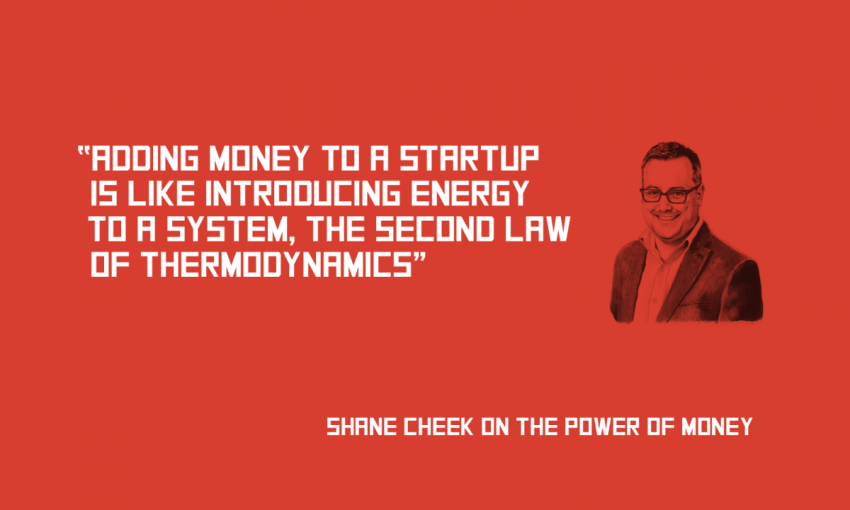Startups are organisms of persistent risk, potential value, and naturally trend toward disorder. Money is the organising force keeping innovators on track, writes VC investor Shane Cheek.
Shane Cheek on the power of money
Venture capital investing is a strange beast when compared to investment decisions such as trading public stocks or allocating money to property, which both follow a generally well understood set of principles and financial models.
Venture capital is used to fund innovation and is made complex by the general lack of financial and market data available for early stage ventures. Some people argue that venture capital investing is no more than throwing darts at a board, and the secretive nature of the industry does little to dispel that myth. In practice, successful venture investing is about managing risk through portfolio strategy and risk reduction strategies for individual investments.
When I think about managing risks I liken it to the first law of thermodynamics, which says that energy can be transformed from one form, or location, to another, but can be neither created nor destroyed. Similarly, the inherent risks of investing in an innovative startup venture and the illusive value created through the next billion-dollar breakthrough business are just two sides of the same coin; risk and value aren’t removed or added, they just change form.
Market, technology, product, team, financing, all these things are risks in venture investing. All these risks can be turned into value by spending money wisely on acquiring time and talent.
Adding money to a startup is like introducing energy to a system, the second law of thermodynamics. The concept of entropy tells us that systems always move towards disorder. Startups are always trending towards disorder, just looking at a startup trying to achieve a product launch deadline will show you that. In fact, you observe entropy everywhere: in economic systems, biological systems, things move towards disorder. Whenever you have a system in disorder there is an opportunity for energy (in this case money) to come in and organise the system.
Sometimes it seems like our school system is moving towards high entropy (disorder). Particularly as teachers try to prepare students for an environment where 85 per cent of jobs that will exist in 2030 haven’t been invented yet.
That’s why I invested in the Adelaide startup, Makers Empire, which is using 3D printing software to introduce design thinking to primary schools (introducing energy to the system). Design thinking is a way of thinking and working that helps us to define and solve problems. It is a non-linear and iterative process that helps us to reframe problems as opportunities. Just like risk and value, problems and opportunities are two sides of the same coin, changing form. Makers Empire is teaching this concept to over 350,000+ primary school students in Australia, America, Europe and Asia.




